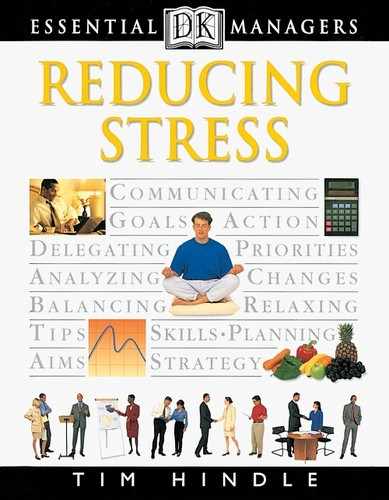Seeing Stress in Others
Stress can be infectious, so you need to recognize it in others before it affects the people with whom they work (including you). There are many ways of reacting to stress; learn to notice common warning signs so that you have time to decide how to react.
Looking for signs
The best way to recognize stress in others is to spot changes in behaviour. The difference between a bad day and a sign of stress is when the abnormal behaviour continues, or even deteriorates. For example, the once-prompt man starts arriving late; the woman who was a good listener avoids eye contact; the soft-spoken accountant loses his temper when asked about an unpaid invoice.
Exploring reasons
Once you have noticed some signs of stress in a colleague, you need to start thinking about the reasons for it. Consider as many options as possible – from problems at home to any difficult relationships in the workplace. Remember that the factors that put you under greatest stress may not affect others to the same extent. Once you have pinpointed likely causes, assess whether or how you can help your colleague. Often, only that person can help themselves, and all you can do is ensure they are not put under additional pressure.
Points to remember
Colleagues may be able to advise on recognizing and dealing with stress within a team; pool your ideas to develop a plan of action.
Other people’s high stress levels can be infectious; try to maintain a level-headed approach to help calm your colleague.
The best way to help a stressed co-worker may be to suggest that they take a break from the project or a relaxing few days off.
Analyzing team stress
Staff who work in teams, brought together to do a particular task, can suffer from specific pressures related to working in a group. For example, if an informal hierarchy develops, some may not approve of the self-appointed leader; or team members may find it stressful to work with people who have different work patterns to their own. Take time to meet teams and individuals so that you are aware of team dynamics and can anticipate problems. You may need to alter working methods and the division of tasks within a team if stress persists.
Averting pressures
You can try to minimize stresses and pressures among those you work with by using open, flexible working practices. The better communication flows, the more likely it is that stress is recognized and defused. Try the following methods of involving people and reducing levels of anxiety:
Keep staff and colleagues informed about all decisions that may affect them;
Encourage participation in planning;
Set aside time each week to ask for comments and suggestions, and to give feedback.
Questions to ask yourself
Will talking to team members highlight any signs of stress?
Should staff workloads be reassessed regularly?
Can stressed colleagues be encouraged to participate in teamwork by drawing on their specific area of expertise?
What is the most likely cause of stress within a team?
TIP
Help colleagues under stress to manage their time better.
TIP
Ask friends of stressed colleagues to help resolve their problems.
TIP
Give colleagues under stress some relaxation tips.
TIP
Offer help only if you have time to follow it up.


